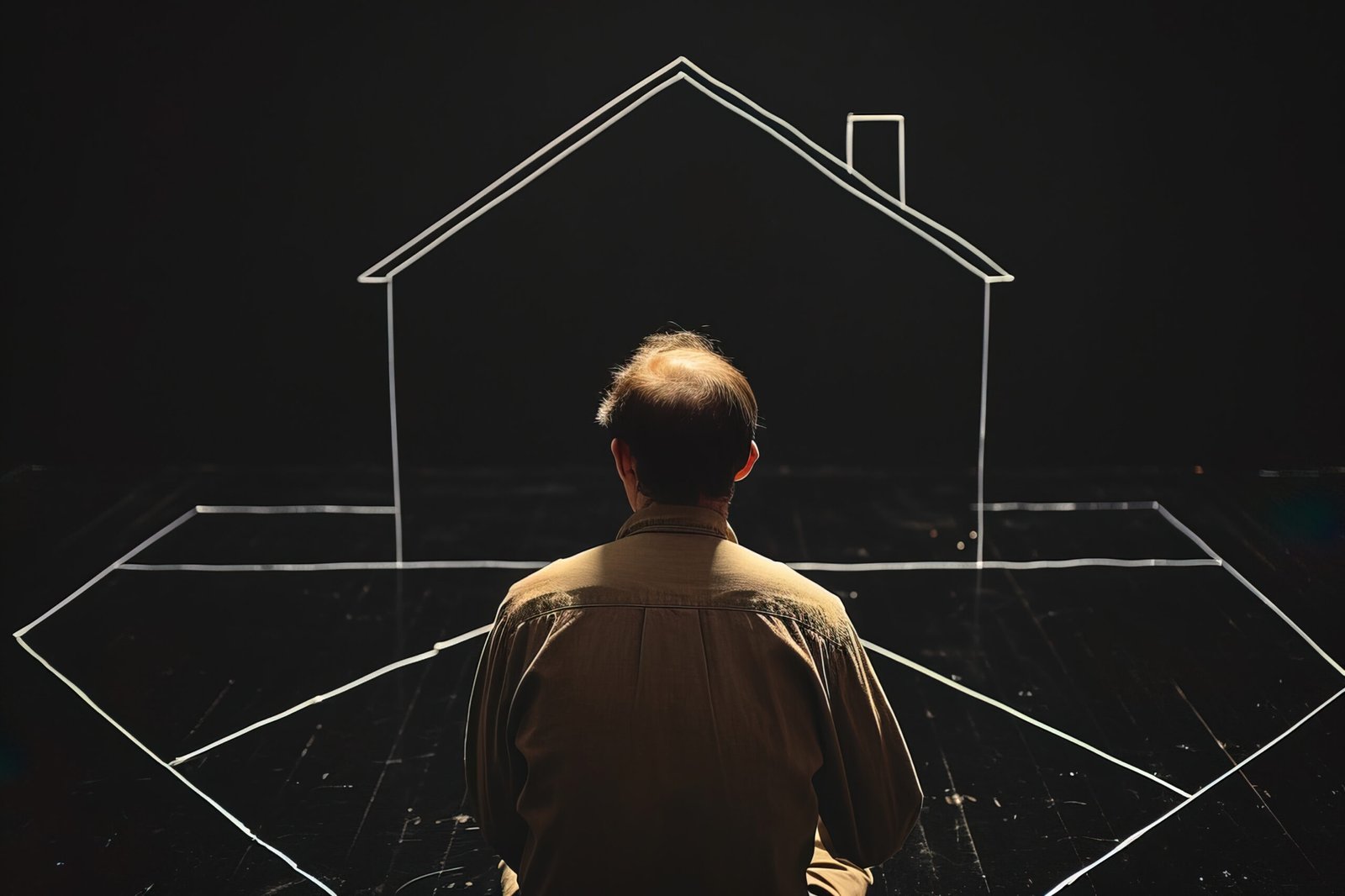Money
Flat vs Rent vs Plot in India: The Best Property Decision Explained
 When it comes to real estate in India, one of the biggest financial decisions you’ll make is whether to own a flat, live on rent, or invest in a plot. This choice isn’t just about lifestyle—it’s about long-term financial security, tax implications, and return on investment (ROI). With changing economic trends and shifting preferences among homebuyers, this debate is more relevant than ever in 2025.
When it comes to real estate in India, one of the biggest financial decisions you’ll make is whether to own a flat, live on rent, or invest in a plot. This choice isn’t just about lifestyle—it’s about long-term financial security, tax implications, and return on investment (ROI). With changing economic trends and shifting preferences among homebuyers, this debate is more relevant than ever in 2025.
Let’s break down each option from a financial, practical, and emotional lens, backed by insights from authoritative sources like Moneycontrol, Live Mint, Financial Express, and India Today.
✅ Option 1: Buying a Flat – The Modern Urban Dream
📌 Overview
Owning a flat has been the go-to dream for many Indians. Whether it’s a 2BHK in Mumbai or a 3BHK in Bangalore, it offers stability, a sense of pride, and a ready-to-move-in solution.
💸 Financial Aspects
Initial Costs: Apart from the base price, you’ll pay GST (if under-construction), stamp duty, registration charges, maintenance deposit, and more.
Home Loan Benefits: Under Section 80C and 24(b), EMI on a home loan offers attractive tax benefits up to ₹3.5 lakh annually.
Appreciation: Flats typically appreciate slower than land but faster than rental yield. However, this depends highly on the location, builder reputation, and market trends.
📈 ROI Example
According to a report by The Financial Express, a flat purchased in Gurgaon in 2015 for ₹65 lakh is now worth approximately ₹95–₹1 crore, averaging an annual return of 4-5% excluding rental income.
🏠 Pros
- Tax savings on home loan
- Easy financing options
- Ready-to-live infrastructure
- Modern amenities (gym, pool, parking)
⚠️ Cons
- Depreciating building structure
- High maintenance charges
- Limited customization
- Lower resale flexibility
Is It a Good Idea to Prepay Your Home Loan? Pros and Cons Explained
✅ Option 2: Renting a Home – Flexibility with Minimal Liability
📌 Overview
With rising property prices in metros and changing job dynamics, many Indians are now choosing to live on rent. This trend is particularly strong among millennials and Gen Z professionals.
💸 Financial Aspects
- No long-term loan burden
- Only security deposit + monthly rent
- Opportunity cost savings (no EMI, can invest elsewhere)
- HRA tax benefits (if salaried)
📊 EMI vs Rent Analysis
- Let’s take Delhi as an example:
- 2BHK flat cost: ₹1 crore
- EMI (20 years, 8.5% interest): ₹86,782/month
- Rent for similar property: ₹32,000/month
You save ~₹54,000/month, which can be invested in SIPs or mutual funds yielding 12-15% annually.
🏠 Pros
- Liquidity & freedom to relocate
- No property tax, maintenance, or loan EMIs
- Ideal for short stays and job hoppers
⚠️ Cons
- No asset creation
- Annual rent escalation (~5-10%)
- Uncertainty in tenancy
- No tax deduction beyond HRA
How to Save Money on Monthly Expenses Without Compromising Lifestyle
✅ Option 3: Buying a Plot – The Long-Term Wealth Creator
📌 Overview
Land has always been considered a solid long-term investment in India. It offers complete ownership, flexibility in construction, and higher appreciation potential—especially on the city outskirts.
💸 Financial Aspects
- No GST on land purchases
- Higher appreciation rates over time
- Difficult financing: loans for plots are costlier and have stricter eligibility
- No rental income unless constructed
📈 Land vs Flat Appreciation
A plot in Whitefield, Bengaluru, bought for ₹30 lakh in 2015, is valued at over ₹85 lakh in 2025—a 3x return in 10 years (source: TOI Real Estate Reports). Plots often outperform flats in emerging Tier 2 and Tier 3 cities.
🏠 Pros
- Greater customization
- Higher ROI over long term
- Fewer maintenance headaches
- Scarcity of land adds value
⚠️ Cons
- No instant income (unlike rent)
- Requires separate construction cost
- Legal due diligence critical (check for RERA-approval)
- May lack basic infrastructure
🧮 Comparative Analysis: Flat vs Rent vs Plot
| Factor | Buying a Flat | Living on Rent | Buying a Plot |
|---|---|---|---|
| Initial Cost | High | Low | Medium |
| Loan Eligibility | Easy (Home Loan) | Not Applicable | Strict (Plot Loan) |
| Tax Benefits | Yes (EMI deduction) | Yes (HRA only) | Limited |
| ROI Potential | Moderate | Nil | High |
| Flexibility | Low | High | Medium |
| Asset Creation | Yes | No | Yes |
| Immediate Use | Yes | Yes | No (construction needed) |
📣 Which Option is Best for You?
✅ Buy a Flat If:
- You’re looking for tax benefits & modern living
- You plan to stay long-term in one city
- You want a ready-to-use asset with minimal hassle
✅ Rent a Home If:
- You’re early in your career or switch cities often
- Want financial flexibility with no long-term debt
- You can invest the EMI difference into high-growth funds
✅ Buy a Plot If:
- You have long-term investment goals
- You don’t need immediate residence
- You prefer asset appreciation over rental income
🔎 EEAT-Backed Expert Insights
According to Live Mint, urban real estate in India is evolving with demand for customized, eco-friendly homes, making plot investment more attractive. However, Moneycontrol suggests that flats remain popular due to convenience and easy financing options.
A recent Hindustan Times report noted that renting in cities like Mumbai, Delhi, and Bangalore is becoming financially smarter for those not intending to settle permanently.
Best Budgeting & Expense-Tracking Apps for 2025: Top Tools to Master Your Money
🧠 Smart Tip for 2025
Combine strategies! Many financially savvy individuals rent in urban areas while investing in plots in growing suburbs like Pune outskirts, Hyderabad peripheries, or NCR regions. This way, you enjoy flexibility while building long-term assets.
📌 Final Verdict
There is no one-size-fits-all answer to “own a flat, live on rent, or buy a plot?”. Your income, job stability, lifestyle goals, family planning, and investment appetite all play crucial roles.
Here’s a rule of thumb:
- Short-term lifestyle + flexibility = Rent
- Middle-class stability + tax benefits = Flat
- Long-term wealth + high appreciation = Plot
Make sure to use tools like an EMI vs Rent Calculator, evaluate rental yield in Indian cities, and consult with a certified financial advisor to match your decision with your long-term financial goals.
🏁 Conclusion
Whether you’re a salaried professional, business owner, or first-time buyer, your real estate choice will impact your financial freedom and future growth. The key lies in aligning your decision with your lifestyle, liquidity, and long-term vision.
So ask yourself—do you want to live free, own now, or invest for tomorrow?
-

 How to4 weeks ago
How to4 weeks agoHow to Check if Your Tax Consultant E-Verified Your Return Properly
-

 Health4 weeks ago
Health4 weeks agoWhat Happens When You Drink Black Coffee Every Day for 30 Days?
-

 Technology3 weeks ago
Technology3 weeks agoPerplexity AI Now on WhatsApp: Ask Questions, Get Summaries, Generate Images & More
-
![ChatGPT 5 Launched: Who Can Access It, How to Use It & Is It Free? [2025 Guide]](https://www.regularstation.com/wp-content/uploads/2025/08/2DAdWvVdE7ivGpRiqcLMfU-400x240.jpg)
![ChatGPT 5 Launched: Who Can Access It, How to Use It & Is It Free? [2025 Guide]](https://www.regularstation.com/wp-content/uploads/2025/08/2DAdWvVdE7ivGpRiqcLMfU-80x80.jpg) Technology3 weeks ago
Technology3 weeks agoChatGPT‑5 Launched: Who Can Access It, How to Use It, and Is It Free?
-

 Money3 weeks ago
Money3 weeks agoJSW Cement IPO Opens: GMP, Price, Subscription Status, Review & Should You Invest?
-

 Cryptocurrency4 weeks ago
Cryptocurrency4 weeks ago5 Cryptos That Could Challenge Solana (SOL) And Grow Your Portfolio 5000% In 2025
-

 Health4 weeks ago
Health4 weeks agoCoconut Water Isn’t for Everyone: 6 People Who Should Avoid It
-

 Health1 week ago
Health1 week ago5 Best Protein Sources for Vegetarians and Non-Vegetarians






